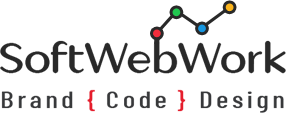SEM & PPC
SEM and PPC are digital marketing strategies used to promote websites and drive traffic, and they often go hand in hand. Here’s some information on how they work:
Search Engine Marketing (SEM):
SEM is a broad term that encompasses various strategies to improve a website’s visibility in search engine results pages (SERPs).
The primary component of SEM is Search Engine Optimization (SEO), which involves optimizing a website’s content, structure, and other elements to rank higher in organic (non-paid) search results.
Another key aspect of SEM is Paid Advertising, which includes PPC campaigns on search engines and other platforms like Google Ads and Bing Ads.
Pay-Per-Click (PPC):
PPC is a type of online advertising where advertisers pay a fee each time their ad is clicked. It’s often used on search engines like Google, as well as on social media platforms and other websites.
Google Ads is one of the most popular PPC platforms. Advertisers bid on keywords, and their ads appear at the top of search results when those keywords are searched.
PPC allows for precise targeting based on keywords, demographics, location, and other factors.
Advertisers can set a budget and only pay when someone clicks on their ad, making it a cost-effective way to drive traffic to a website.
If you’re looking to work in SEM and PPC, here are some steps you can take:
Education and Training:
Familiarize yourself with the basics of SEM, including SEO and PPC. There are numerous online courses and certifications available to learn these skills.
Stay up-to-date with industry trends, as search engine algorithms and advertising platforms often change.
Keyword Research:
Learn how to conduct keyword research to identify the most relevant and valuable keywords for your target audience.
Ad Campaign Management:
Understand how to create and manage PPC campaigns. This involves setting budgets, defining targeting parameters, and creating effective ad copy.
Analytics and Reporting:
Be proficient in using analytics tools to track the performance of SEM and PPC campaigns. Tools like Google Analytics and Google Ads provide valuable data for optimization.
Content Creation:
Develop skills in content creation and optimization for SEO. High-quality, relevant content is essential for both organic search rankings and ad campaigns.
A/B Testing:
Learn how to conduct A/B tests to optimize ad creatives and landing pages for better conversion rates.
Certifications:
Consider earning certifications from platforms like Google Ads and Microsoft Advertising to demonstrate your expertise.
Experience:
Gain practical experience by working on real campaigns, either through internships or freelance opportunities.
